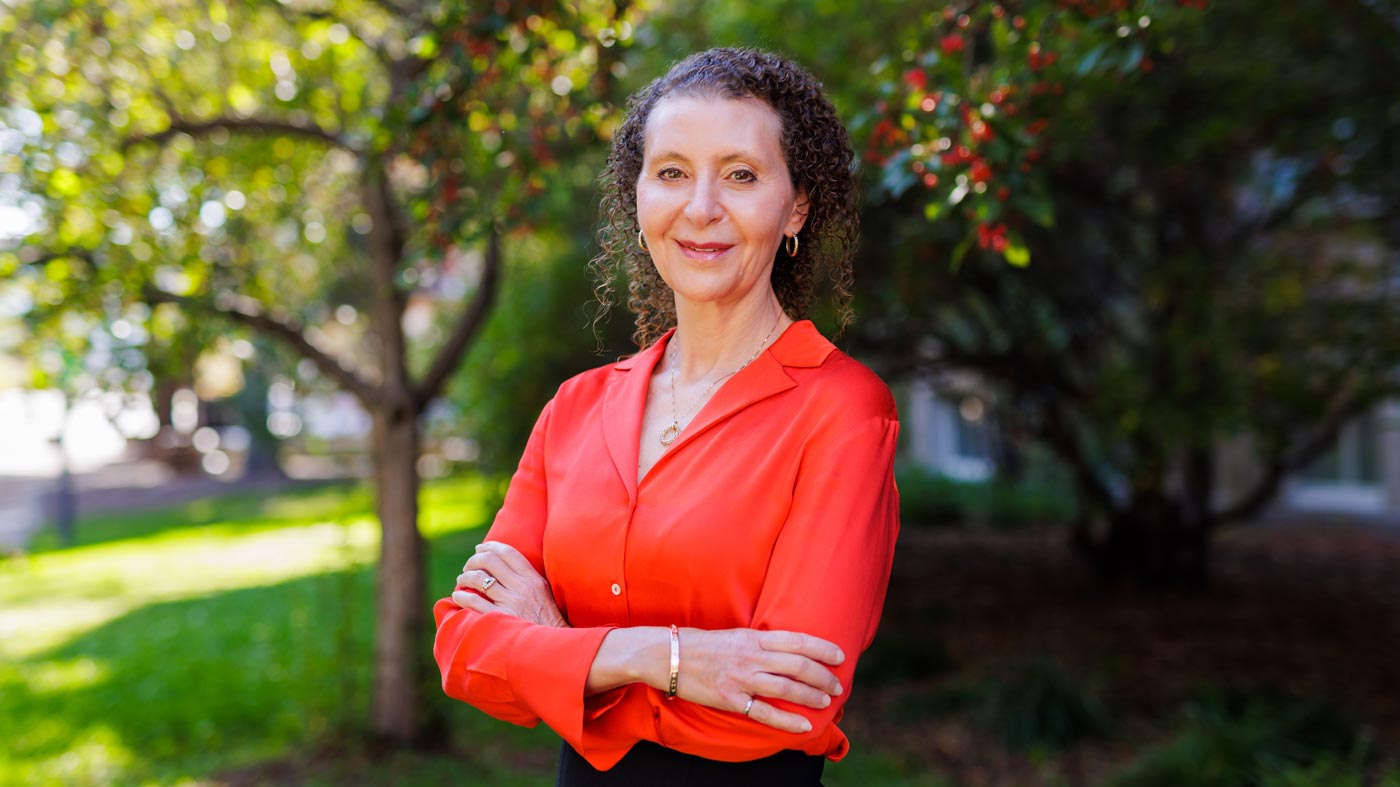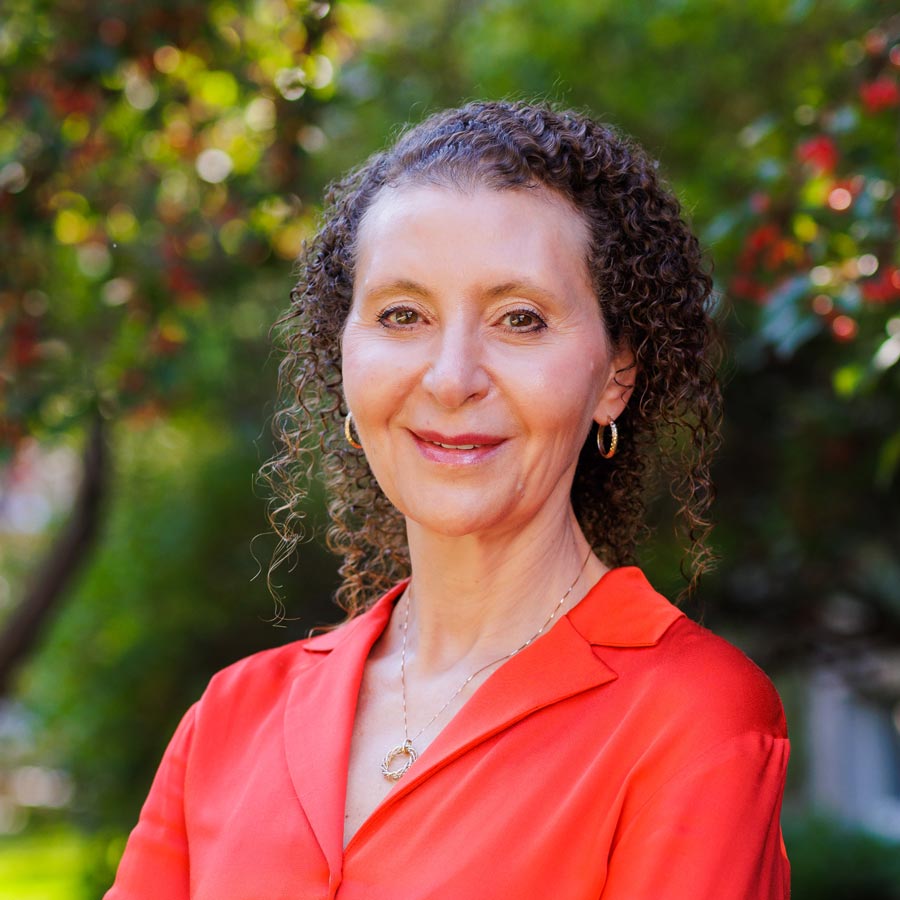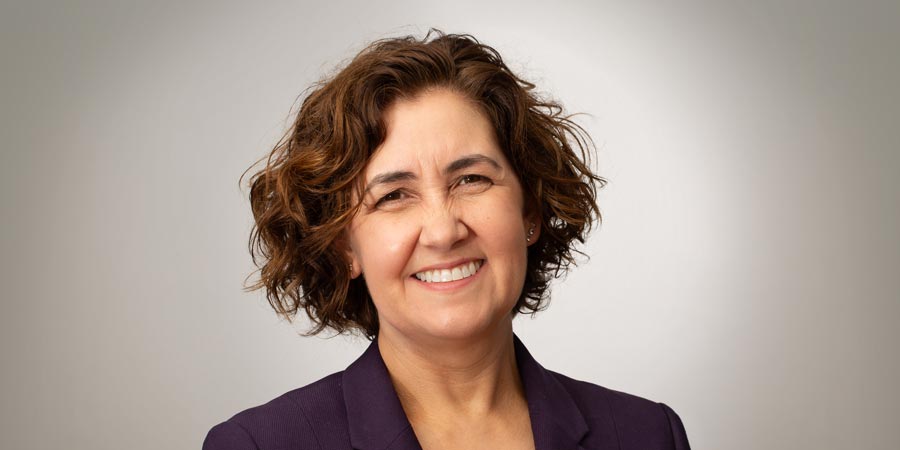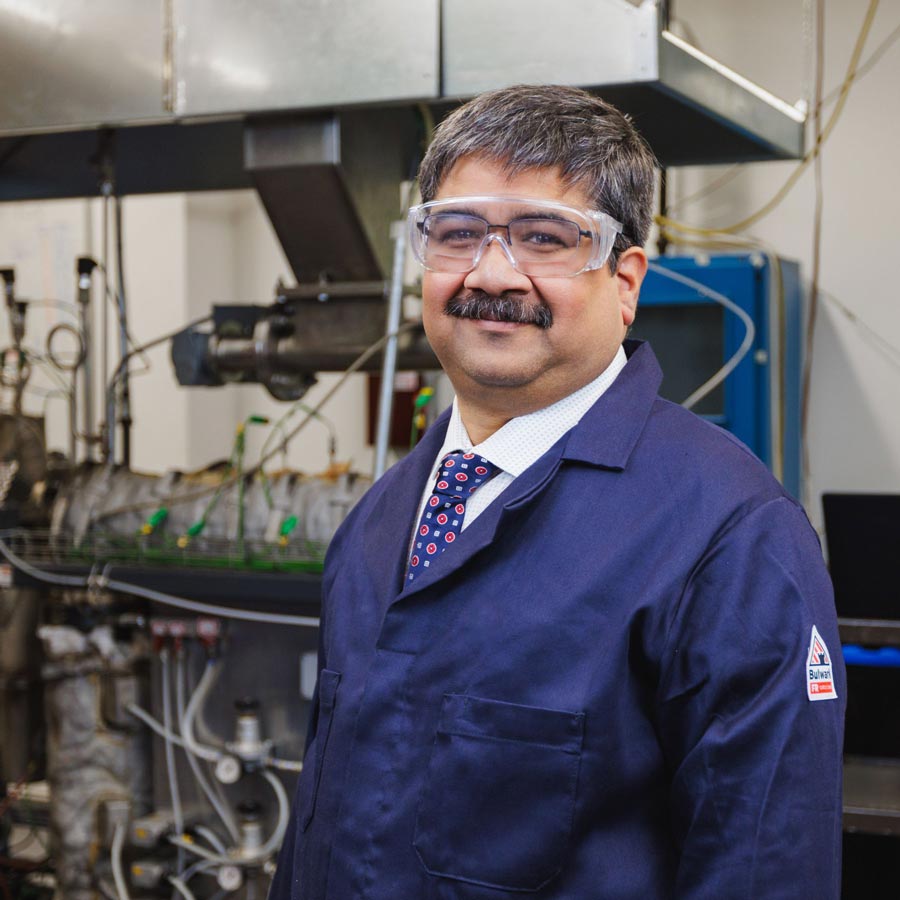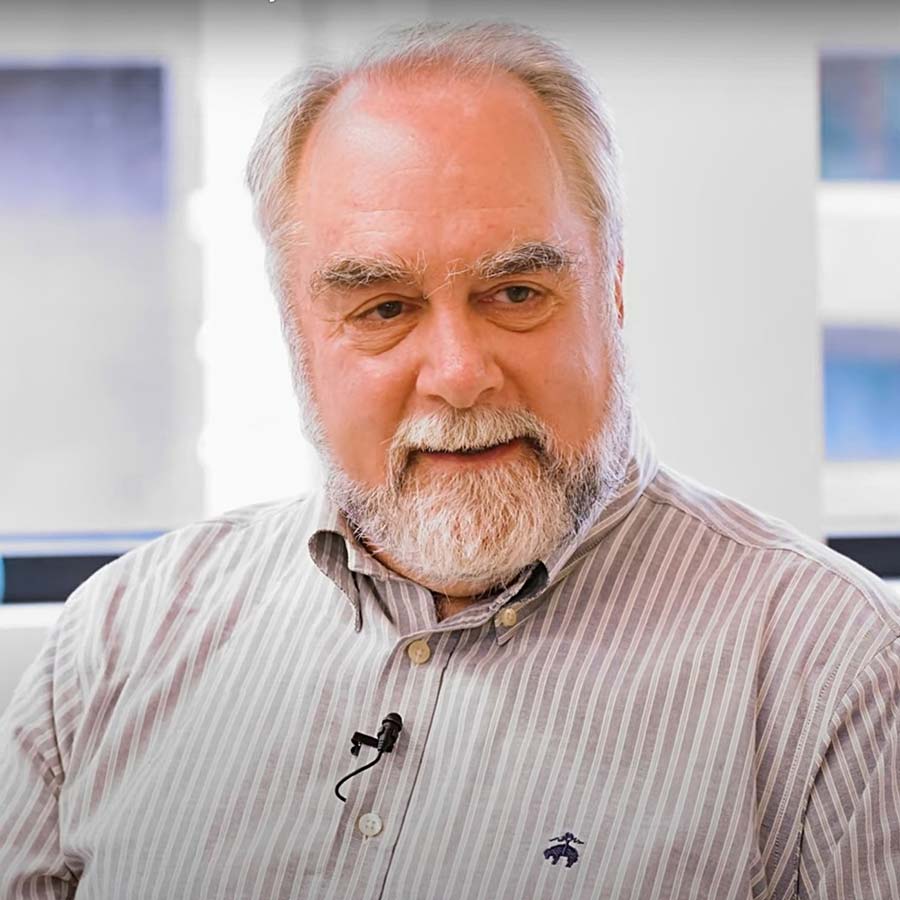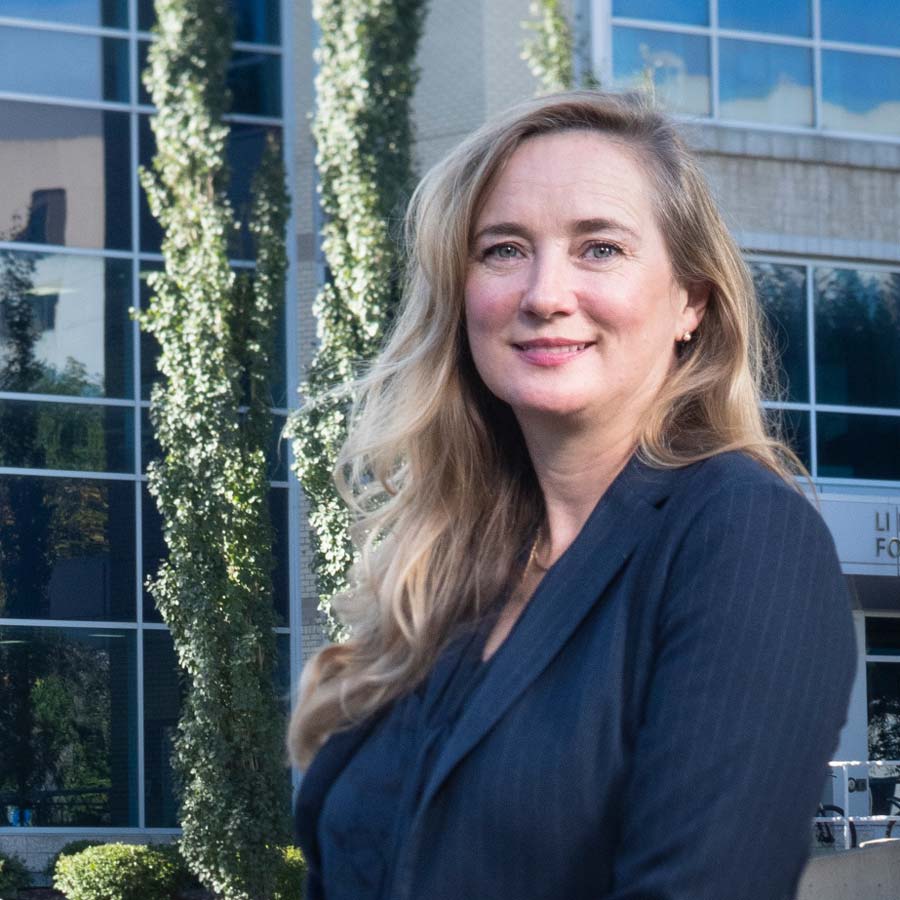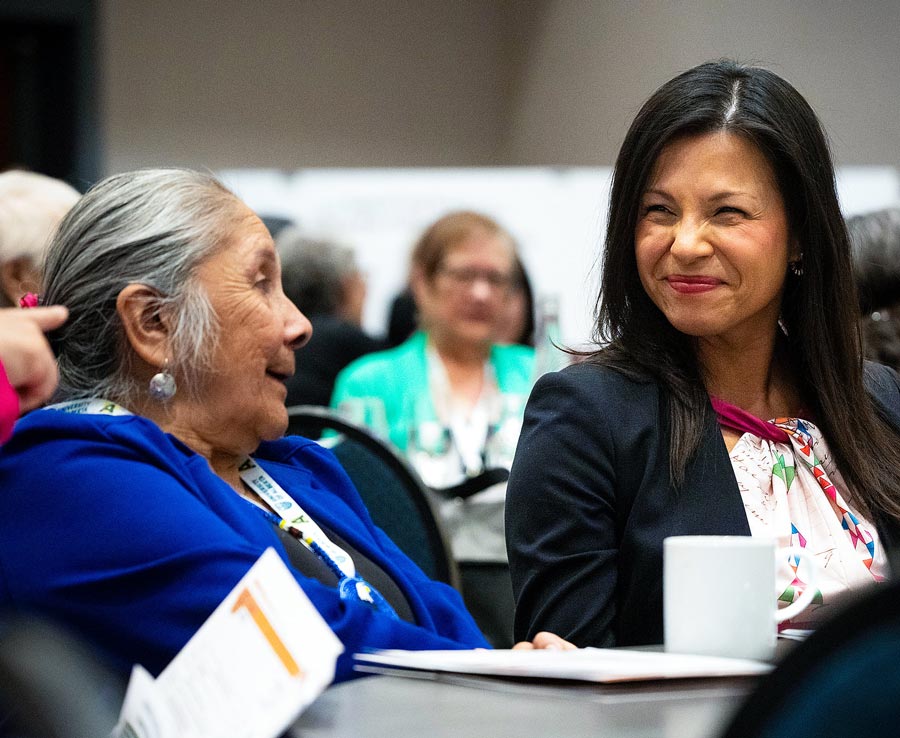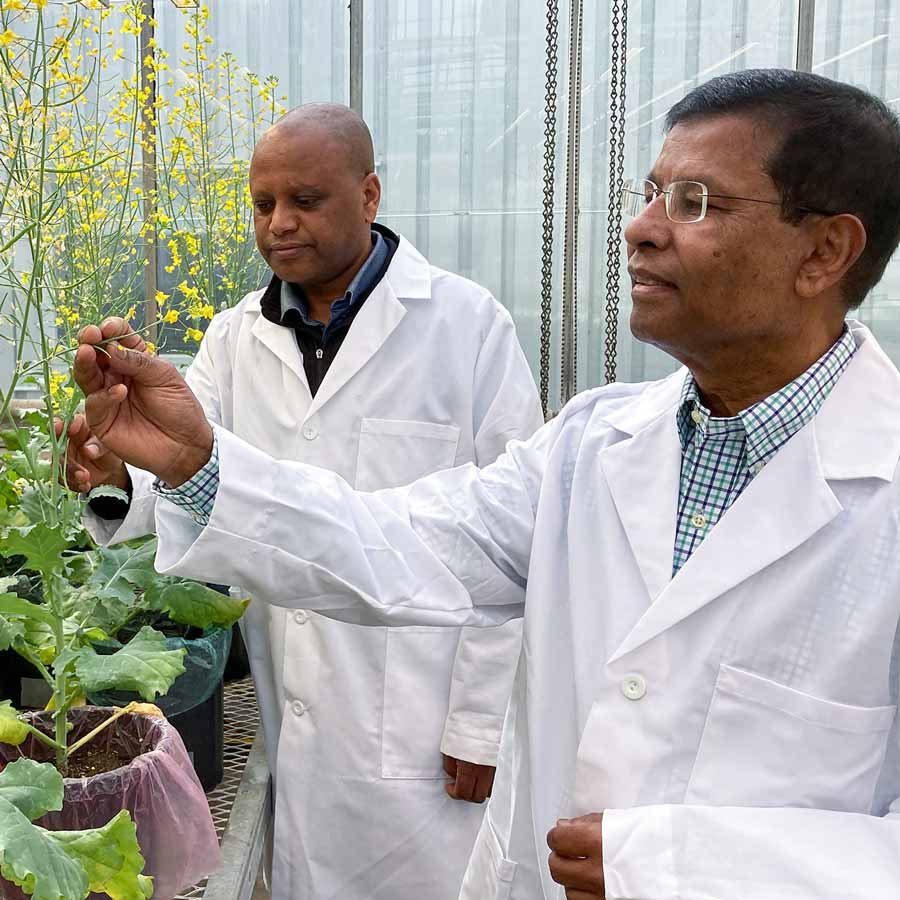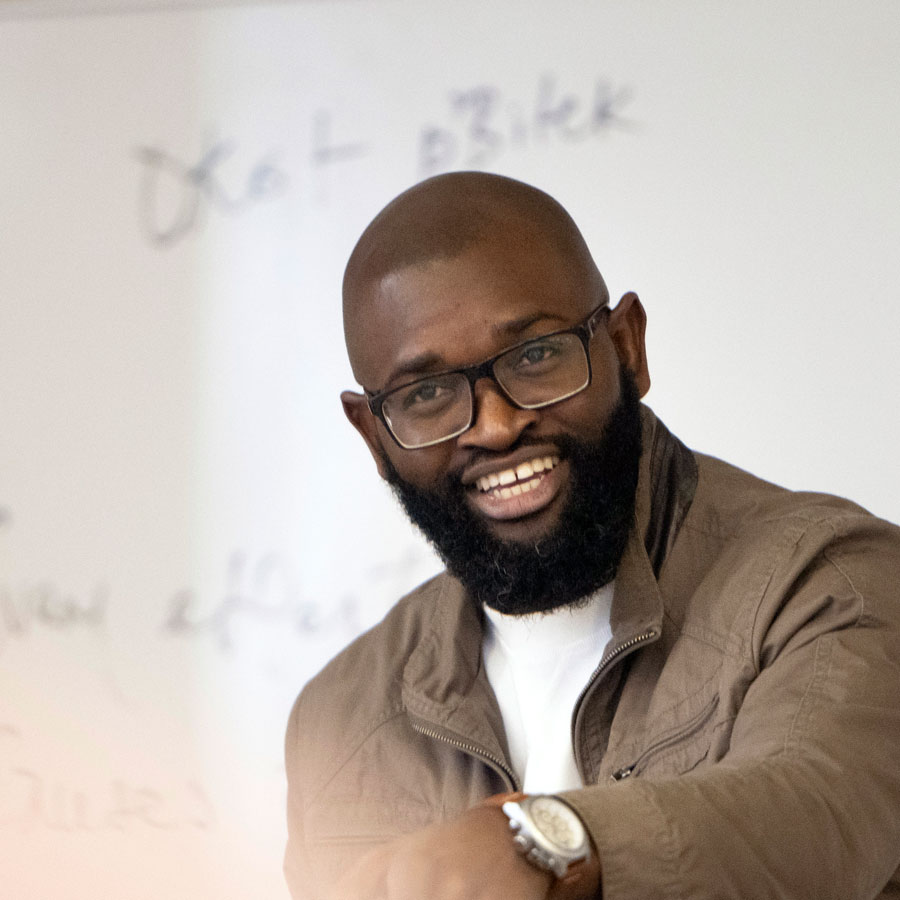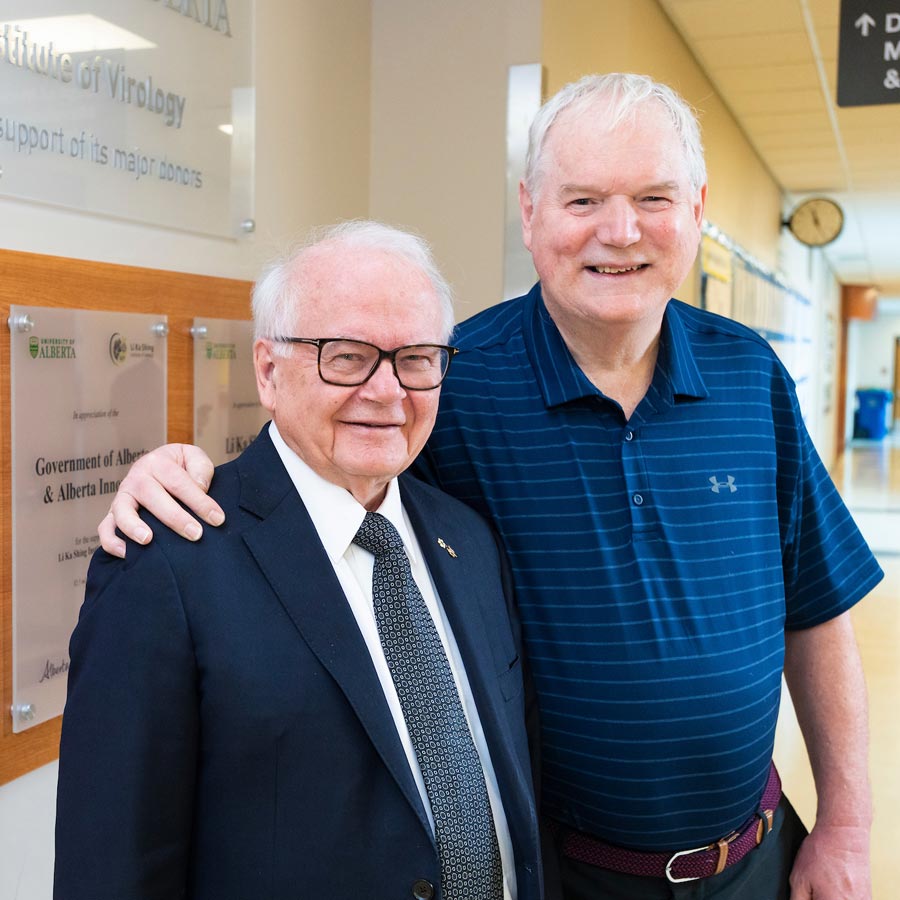Impact Numbers
$597 M
total research revenue
(5th in Canada)
$68 M
industry-sponsored research revenue
96th
globally in QS World University Rankings
6th
globally for sustainability impact in Times Higher Education
109
Canada Research Chairs (5th in Canada)
4
Canada Excellence Research Chairs (2nd in Canada)
36
patents issued
107
inventions disclosed
U of A welcomes eminent researchers



Canada Excellence Research Chairs Kalyan Das, Rebecca Hull-Meichle and Shinichi Nakagawa (left to right) were each awarded $8 million in federal funding over eight years to establish ambitious research programs at the U of A. (Photos: Supplied)
Canada Excellence Research Chairs Kalyan Das, Rebecca Hull-Meichle and Shinichi Nakagawa (top to bottom) were each awarded $8 million in federal funding over eight years to establish ambitious research programs at the U of A. (Photos: Supplied)
U of A welcomes eminent researchers
Three leading researchers joined our ranks this year as Canada Excellence Research Chairs, one of the world’s most prestigious awards that supports world‑renowned researchers and their teams to establish ambitious research programs at Canadian universities.
In the College of Health Sciences, Kalyan Das will focus on the replication machinery in viral pathogens with high epidemic potential, such as coronaviruses, influenza and enteroviruses. Meanwhile, Rebecca Hull-Meichle will explore the role of blood vessels in the pancreas and their effect on islet cell function and survival, and look at why many people with cystic fibrosis also have high rates of diabetes.
In the College of Natural & Applied Sciences, Shinichi Nakagawa will establish the first global metascience project in ecology and evolution, applying artificial intelligence and statistical analysis to mountains of scientific data to weed out flawed research, making methods, data and inferences in ecology and evolution more accessible, transparent, reliable and rigorous.
This brings the U of A total of active CERCs to four, including 2019 recipient Lara Mahal in the College of Natural and Applied Sciences.
Energy + Environment
This field, including energy systems, hydrogen research and climate change mitigation, is one of our three areas of global research excellence. Our research and innovation helps generate the knowledge, tools and people needed to meet the world’s energy needs in a sustainable way.
The U of A is one of the top 10 universities in the world for energy systems research, boasting more than 50 research chairs in energy and environment. U of A scientists are developing technologies to reliably produce, store, transport and deliver energy in ways that drive toward net-zero emissions and help the world move toward a low-carbon economy. Meanwhile, other teams are furthering our understanding of social, political and economic considerations in these areas.
Blending hydrogen with natural gas could help fuel energy transition
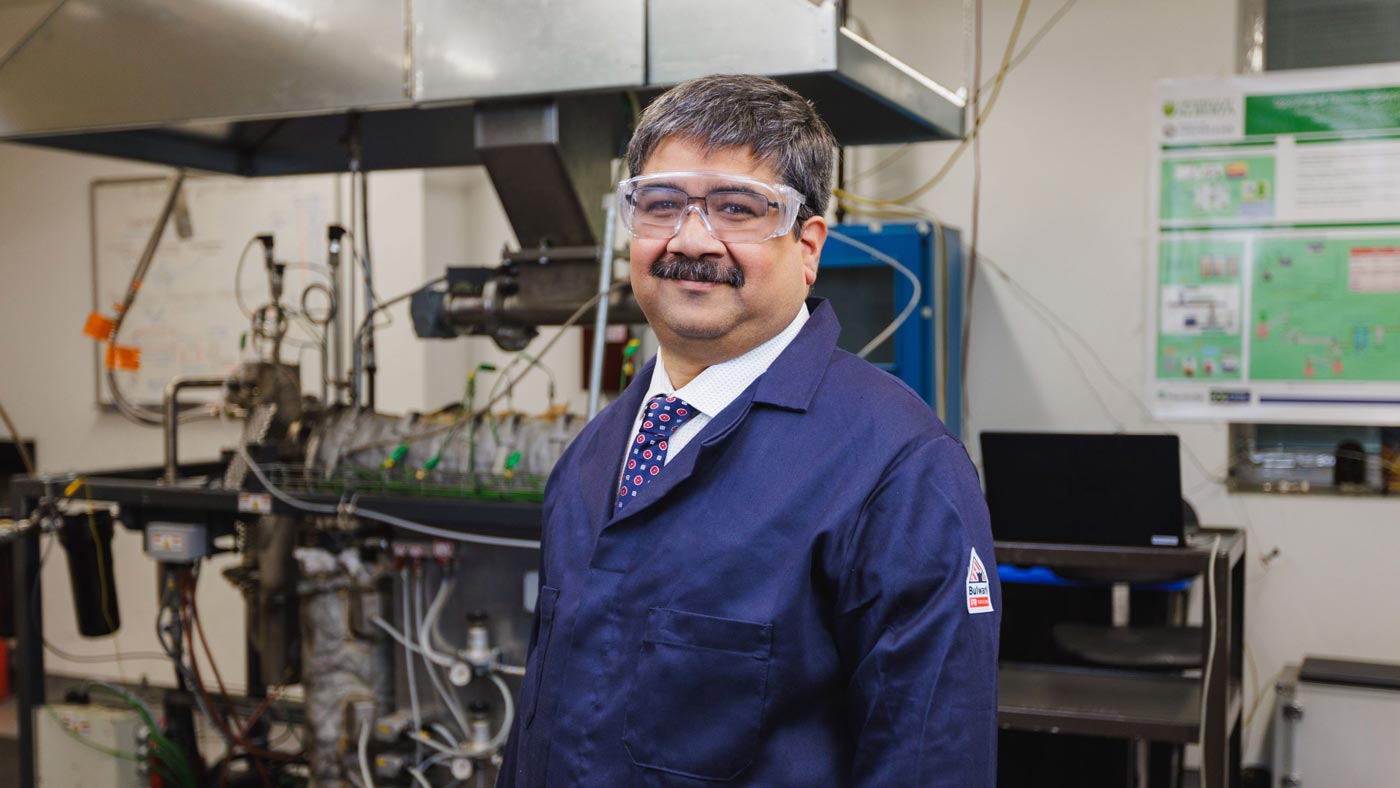
Amit Kumar’s research suggests blending hydrogen with natural gas could reduce carbon emissions by as much as five per cent without changing existing infrastructure. (Photo: Supplied)
Blending hydrogen with natural gas could help fuel energy transition
Research by an internationally recognized climate scientist at U of A shows that heating homes with a blend of hydrogen and natural gas could reduce carbon emissions by up to five per cent without the need for new infrastructure.
The blended fuel, called hythane, could be a major step forward in the transition to a low-carbon economy, says Amit Kumar, Tier 1 Canada Research Chair in Assessment of Energy Systems and deputy director of the U of A’s Future Energy Systems. It could also boost Alberta hydrogen exports as other jurisdictions adopt the technology.
“Economies will benefit from the infrastructure scale-up through job creation, attracting investment and technology exports,” says Kumar, who is also part of the Canadian Net-Zero Energy Solutions (CANZES) initiative to drive CO2 emissions reductions and diversify Alberta’s economy. “We produce a large amount of hydrogen in Alberta, but most of it is used in the industrial sector in bitumen upgrading and fertilizer production. If we convert our infrastructure to produce blue hydrogen — and that means adding carbon capture and storage — to all of these production facilities, that's a big win for us.”
Capturing at least 42 per cent of the carbon emissions will produce an overall “well-to-combustion” reduction across the chain. The more carbon emissions are reduced, the cheaper the fuel becomes due to savings in the carbon tax, he adds, especially when carbon prices are more than $300 per tonne.
How a shift to hythane could benefit Alberta and other economies »
Innovation Spotlight
New Innovation Fund set to accelerate startup success globally
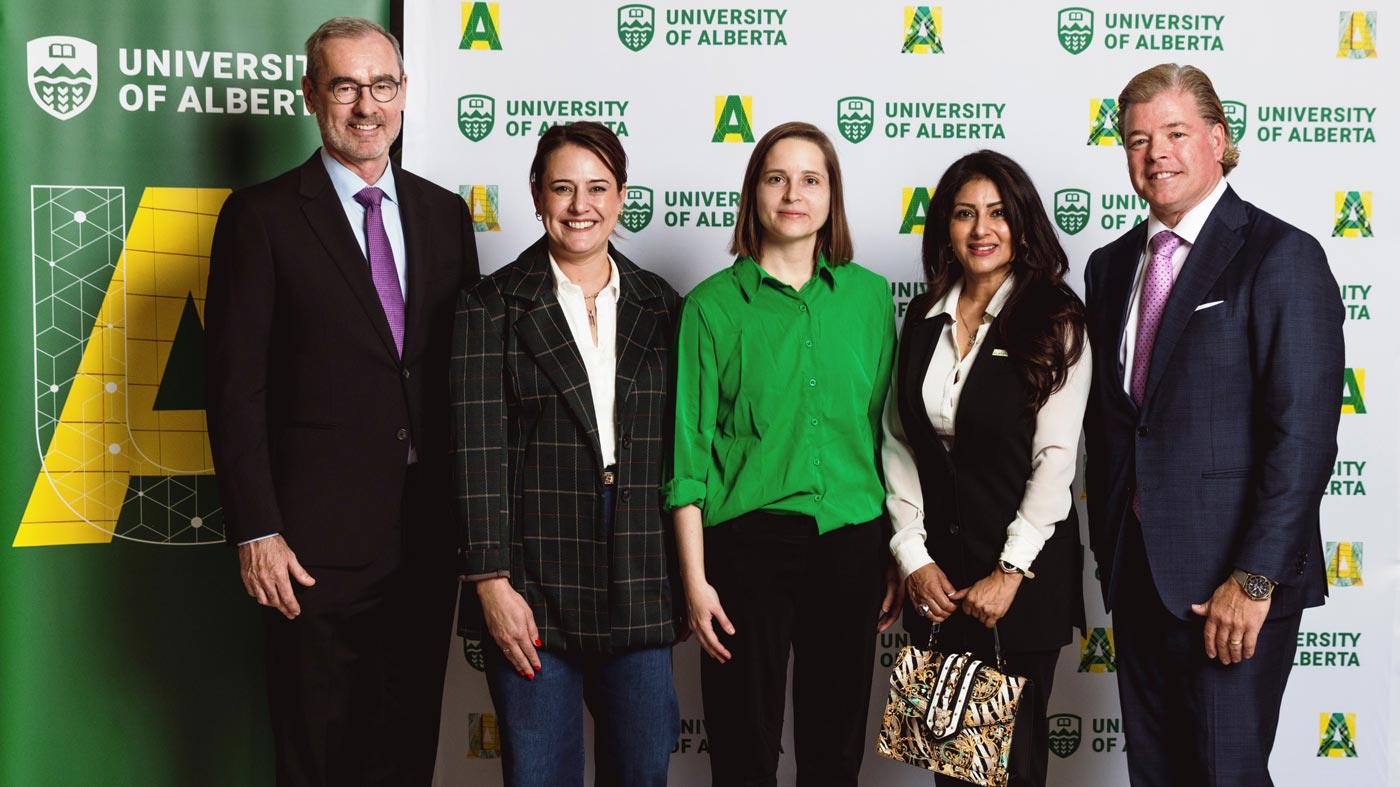
The University of Alberta Innovation Fund is banking on the team at RL Core Technologies as its first investment. They are piloting the use of AI in water treatment to optimize processes, reducing costs and energy use. (Photo: Laughing Dog Photography)
New Innovation Fund set to accelerate startup success globally
The University of Alberta has launched a new fund to invest in startup ventures working to solve complex global challenges and to diversify Alberta’s economy.
The Innovation Fund, funded through alumni and donor support, will empower startups from the U of A and beyond with financial support, mentorship and access to global markets, allowing them to move from concept to reality.
As an independent entity with its own board, the fund will conduct due diligence and recommend investment in startups that benefit Albertans, with returns reinvested in future innovations. It will focus on innovations in artificial intelligence, health, energy and agriculture -- and offer meaningful opportunities for students to be involved in the fund's operation.
The fund’s first investment is RL Core Technologies, which uses a data-driven AI approach to optimize water treatment and other industrial control systems, reducing costs and energy use.
Artificial Intelligence
AI is one of the U of A’s three areas of global excellence , building on our decades-long position at the forefront of this field. It is rapidly changing the way we live, work and do business, and has the potential to add trillions in global economic activity by 2030.
Our expertise in AI, machine learning and data science extends to precision health imaging and diagnostics, smart prosthetics and robotics, automated legal reasoning, language learning, financial forecasting, smart agriculture tools, water treatment and optimization of oil and gas recovery. U of A also leads in the exploration of the social, cultural, economic, ethical, ontological and privacy implications of these technologies, as well as their interactions with diverse communities, including Indigenous Peoples.
#1
in Canada
for Artificial Intelligence (US News)
Discover the U of A’s expertise in Artificial Intelligence »
We need to talk: Leading researcher guides the conversation between AI and humanity

As a Canada CIFAR AI Chair, Geoffrey Rockwell joins a cohort of innovative artificial intelligence experts across the country. (Photo: Amii)
We need to talk: Leading researcher guides the conversation between AI and humanity
Easy access to “chattering machines” such as ChatGPT and other AI tools is an invitation to revisit the age-old tradition of teaching through dialogue, says one of the U of A’s latest Canada CIFAR AI Chairs at Amii.
“We could all rediscover the rich history and potential of this form of engagement,” says Geoffrey Rockwell, a U of A professor of philosophy and digital humanities. “At the same time, we also have to teach our students to be careful and think critically about engaging with [AI systems] and assessing the credibility of what they say.”
As a Canada CIFAR AI Chair at Amii, one of three national centres of AI excellence, Rockwell will continue his groundbreaking examinations into the effects of rapidly evolving digital culture. In the field of digital humanities, he integrates computational methods and theories with research and teaching in the liberal arts. His research explores the social, cultural, economic, and privacy implications of these new technologies and their interactions with diverse communities.
The CIFAR program was launched in 2017 to bolster the federal government’s strategy to drive AI adoption across Canada’s economy and society and recruit and retain AI talent. More than 120 chairs have been appointed at Canada’s three national AI institutes, including 34 chairs at Amii.
Health + Well-being
Health is one of U of A’s three areas of global excellence, and our expertise extends from virology, biomanufacturing and life-saving vaccines, to disease prevention, cell-based therapies and life-course approaches to care and well-being.
Besides our globally recognized efforts to develop and commercialize vaccines, antivirals and diagnostics, we are experts in translational research, which integrates social determinants such as income, education, gender and race, as well as access to nutritious food, housing and employment into scholarly discourse and actionable interventions to address health inequities.
Exceptional U of A health researchers advance outcomes across areas such as precision health, intelligence medical devices, therapeutics and Indigenous family health.
Research teams awarded $100 million to prepare for the next pandemic
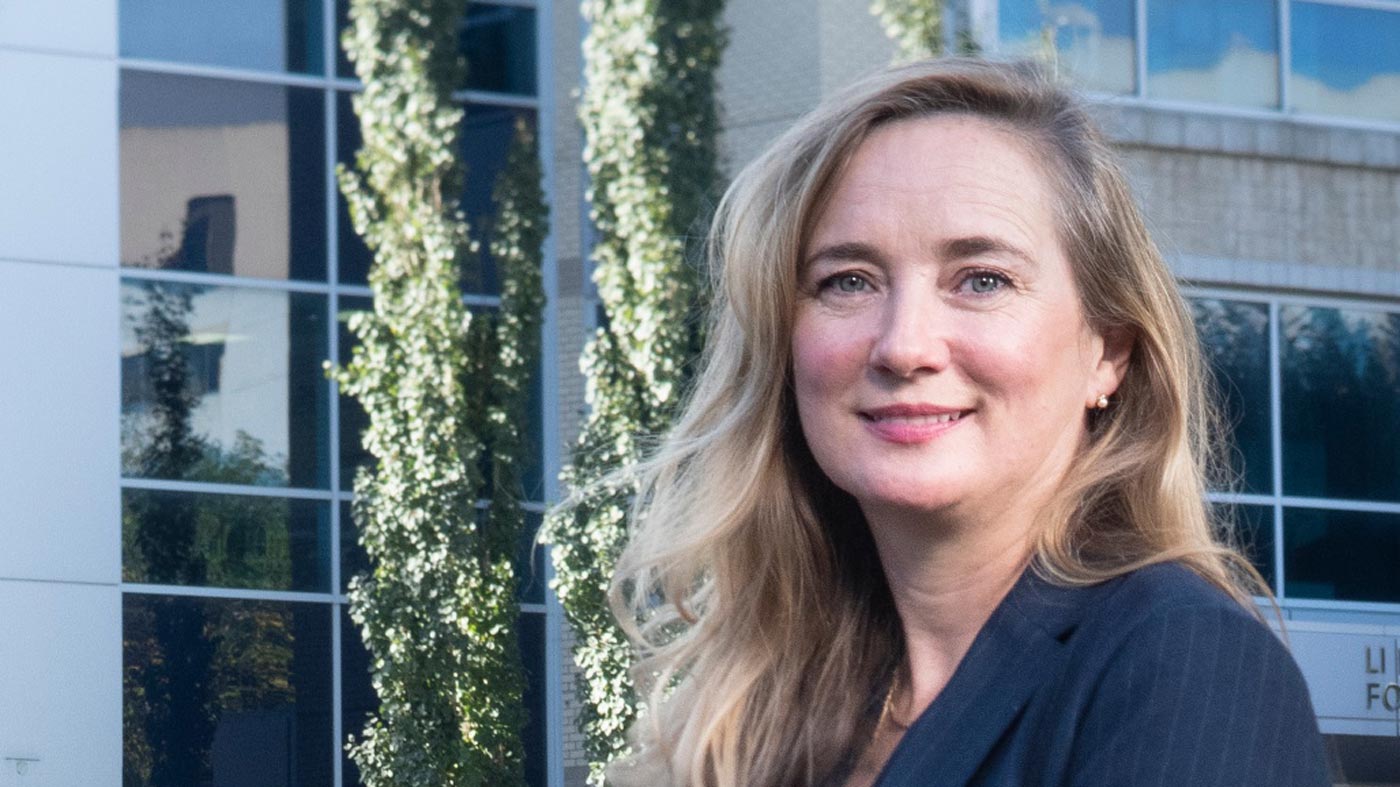
Joanne Lemieux is leading efforts to bring together academic and industry leaders in the PRAIRIE Hub for Pandemic Preparedness to find ways to counter emerging health threats and accelerate biomanufacturing in Canada. (Photo: John Ulan)
Research teams awarded $100 million to prepare for the next pandemic
A team of U of A researchers were awarded nearly $100 million in federal research grants this year to help Canada prepare for the next pandemic.
Four successful projects (including one at the University of Manitoba) will advance through the PRAIRIE Hub for Pandemic Preparedness, which is led by the University of Alberta and includes researchers from the University of Manitoba, the University of Saskatchewan and the University of Calgary, along with biomanufacturing industry partners.
“From a public health standpoint for Canada, to have vaccines mobilized and ready to go into people’s arms is an important factor to prevent catastrophic outcomes from an emerging infectious disease,” says hub executive scientific director Joanne Lemieux, professor in the Faculty of Medicine & Dentistry and a member of the Li Ka Shing Institute of Virology.
One of the projects is led by Michael Houghton, winner of the 2020 Nobel Prize in Physiology or Medicine, professor of medical microbiology and immunology. His team will develop, test and manufacture new vaccines against three groups of viruses with high pandemic potential using self-amplifying RNA to allow for smaller and safer doses. Other projects will ensure Canada has the capacity to conduct efficient clinical trials of new vaccines, treatments and small molecule drugs; develop a pathway for diagnostic tests; and compare methods of vaccine delivery.
Learn how PRAIRIE Hub is discovering and making new vaccines, diagnostic tests and treatments »
Innovation Spotlight
Airport partnership helps scale up fat-to-fuel technology for aviation industry
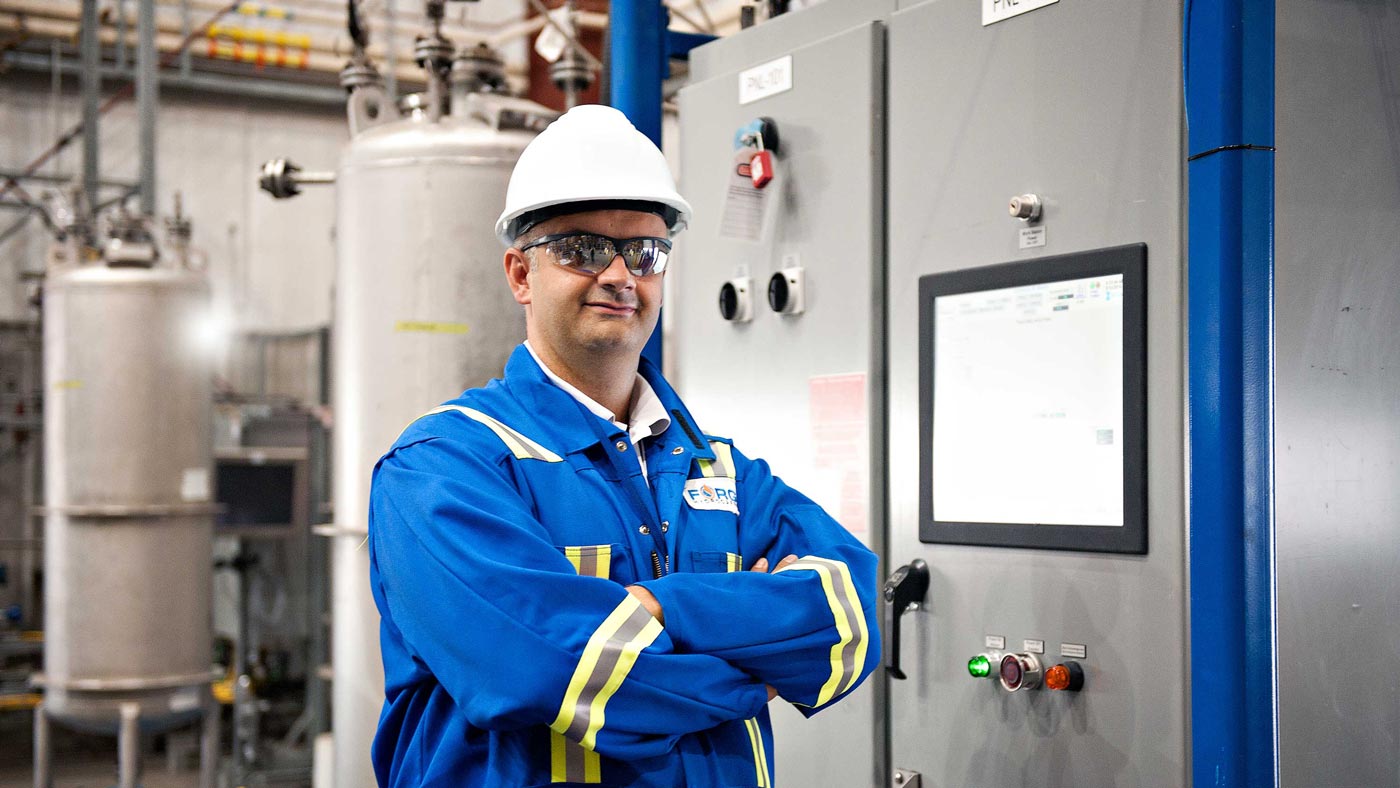
David Bressler’s technology is used to refine renewable waste materials such as restaurant grease and tallow from the rendering industry into hydrocarbon fuels, solvents and chemicals. (Photo: John Ulan)
Airport partnership helps scale up fat-to-fuel technology for aviation industry
A U of A spinoff company that makes jet fuel out of biowaste is working with YEG, the Edmonton international airport to establish a local fuel production facility.
Forge Hydrocarbons uses patented technology developed by U of A bioresource scientist David Bressler to convert waste fats and oils into hydrocarbons for biofuels, which have a lower carbon footprint than fossil fuels.
“It contributes to decarbonizing a high-emission industry that doesn’t have a lot of alternatives in electrification and other spaces,” Bressler says. It also capitalizes on Alberta’s strengths in agriculture and energy and “sustainably diversifies our energy streams,” he adds.
Forge Hydrocarbons CEO Tim Haig says the collaboration leverages the company’s ability to scale production plants to regional needs and to use a wide range of feedstocks.
Edmonton Airports welcomed the opportunity to demonstrate the value of low-emission fuel to the aviation industry and to take part in the development and commercialization of local technology. “Making smart and sustainable decisions go hand-in-hand,” says Myron Keehn, YEG president and CEO.
Indigenous Research
The U of A is a recognized leader in this field and is committed to its growth. We take seriously the need to actively and responsively partner with Indigenous Nations and organizations on research to find innovative solutions to pressing problems. We are a world leader in Indigenous health and health equity and are leading a national initiative to ensure First Nations, Métis and Inuit communities and individuals have equitable access to participate in and benefit from clinical trials.
We are guided by Braiding Past, Present and Future, an Indigenous-led strategic plan that ensures Indigenous Peoples, languages, cultures and worldviews are fully present in our work, and holding the institution accountable to a reconciled future with First Nations, Métis and Inuit. We remain the only university in North America with a Faculty of Native Studies.
1st and only
Faculty of Native Studies in North America
New guide offers support for Indigenous language revitalization
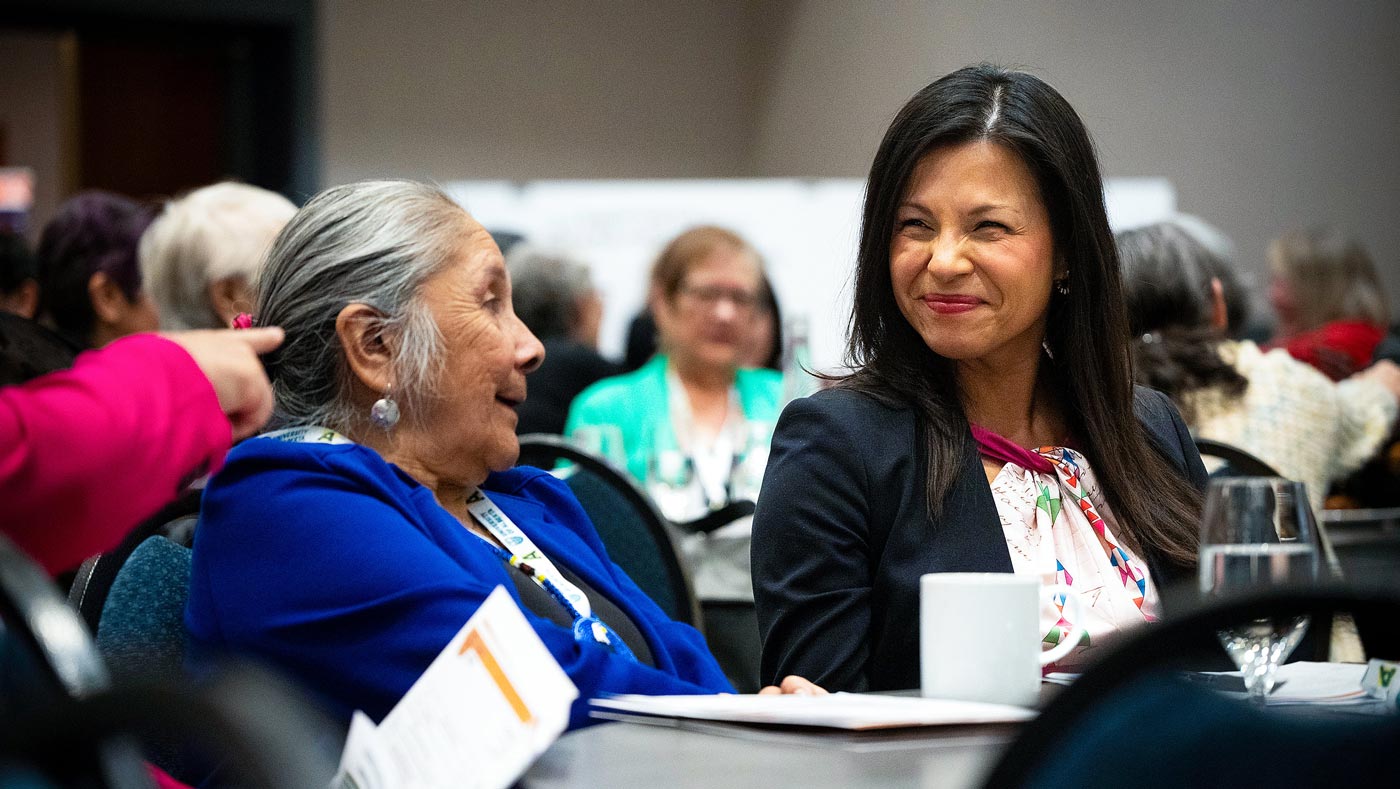
A new resource to support Indigenous language revitalization was presented by Pamela McCoy Jones (right) to language advocates such as Lynda Minoose (left), who heads the first Denesųłįné Language and Culture Department on Cold Lake First Nations. (Photo: John Ulan)
New guide offers support for Indigenous language revitalization
A new U of A resource proposes a mix of formal and informal ways to support Indigenous language revitalization, from developing K-12 curriculum and policy to podcasts and political advocacy.
Towards Indigenous Language Revitalization: An Informative Resource offers learners and communities ideas to consider when tailoring their strategies for language learning and growth, says Pamela McCoy Jones, executive director of Supporting Indigenous Language Revitalization. SILR, a comprehensive six-year initiative administered by the U of A, developed the guide as part of its mandate to support Indigenous and community-led projects to revitalize languages.
“People don’t always see themselves in formal learning environments,” McCoy Jones says, “so we wanted to provide an abundance of information so that anyone looking at language learning would be inspired, and able to see themselves in this resource as learners, developers and advocates.”
The guide recognizes the complexity and diversity of Indigenous languages as well as the oral traditions unique to each community. It shows how the work of revitalization requires collective effort from communities, leaders, educators, administrators and policy workers and emphasizes advocacy to raise awareness about the importance of language in sustaining Indigenous cultures and well-being.
Resource could help teachers improve language learning from preschool to post-secondary »
Agriculture + Food
U of A works across the spectrum of agriculture and food to nutrition and human health, building on a broad foundation of research on water, soil and biodiversity.
By working closely with industry, we are helping improve food security, from disease-resistant crops to sustainable proteins. We are creating the next generation of tools and practices to protect producers in the face of changing climate, while driving economic development and diversification in Alberta and around the world.
Our nutritional assessment and clinical nutrition research is supported by our commitments to engage with communities and improve quality of life for people in Alberta and beyond.
Gene research looks to boost canola yields, profits

Habibur Rahman (right) and Berisso Kebede Demo are working to improve the genetic diversity of hybrid canola. (Photo: Bev Betkowski)
Gene research looks to boost canola yields, profits
New research to expand the genetic diversity of canola looks to boost seed yield for this important cash crop.
Plant scientist Habibur Rahman and his team are sifting through the genes of Brassica oleracea vegetables such as broccoli, cabbage and kale to pinpoint the best ones to fortify seed production in canola hybrids.
Production of the oilseed crop contributes $29.9 billion per year to Canada’s economy, with annual global exports totalling $14.4 billion. Mainly in Alberta, Saskatchewan and Manitoba, farmers harvest about 20 million tonnes of canola annually, with hybrid cultivars accounting for more than 95 per cent.
Working with Bayer Crop Science, a research and funding partner on the new project, Rahman will develop hundreds of new canola lines and test them in fields across the Prairies. The research will identify the genes or chromosome regions of Brassica oleracea contributing to high seed yield in canola and other desirable traits.
The project, which is also supported through a Natural Sciences and Engineering Research Council of Canada grant, builds on Rahman’s past research proving that Brassica oleracea carries favourable genes for early flowering and high oil content in canola cultivars.
Augustana professor works to restore African philosophy eroded by colonization
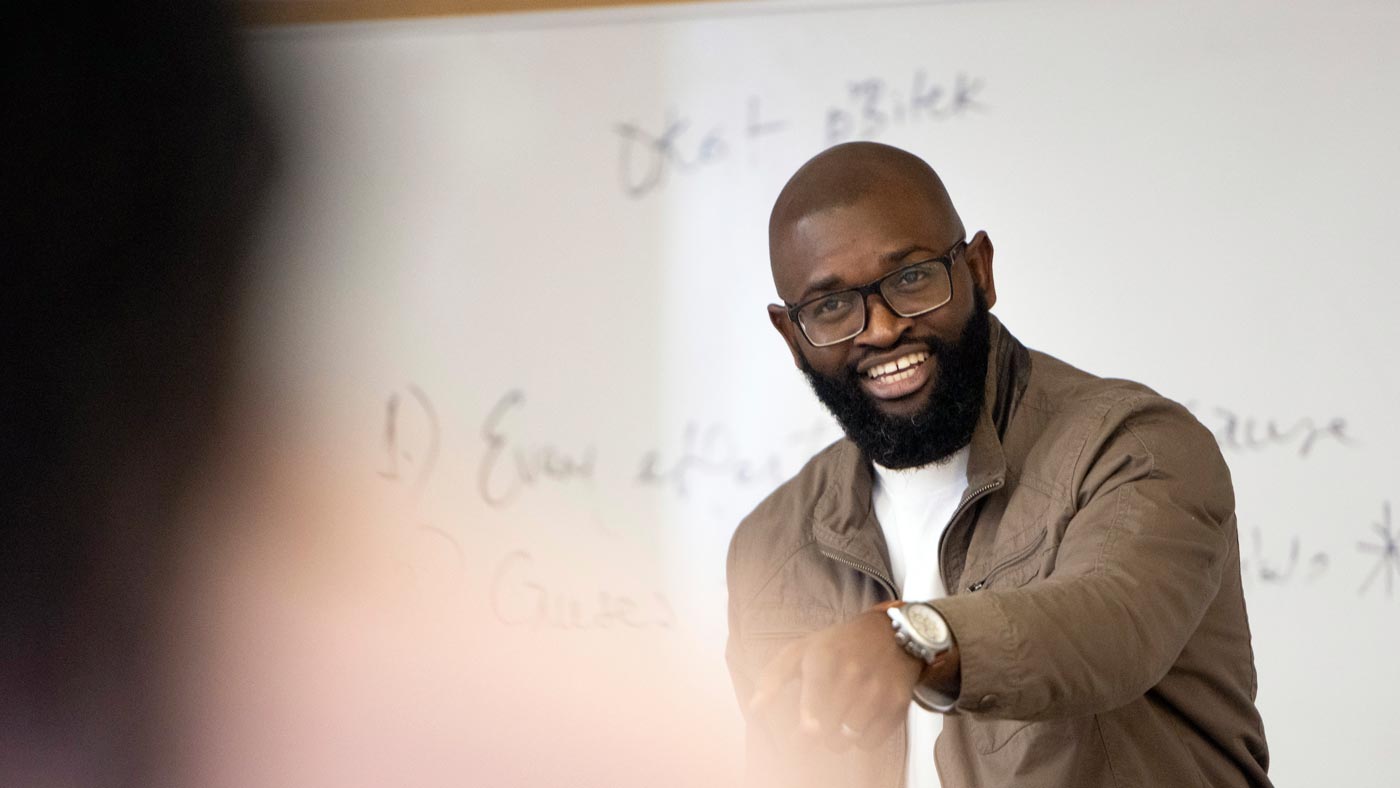
Michael Omoge found his passion for philosophy as an undergrad. Now, the U of A assistant professor wants to help African philosophy take its rightful place among schools of thought that seek to answer life’s biggest questions. (Photo: John Ulan)
Augustana professor works to restore African philosophy eroded by colonization
A new U of A scholar is working to help African philosophy secure a place alongside other recognized schools of thought.
“I am researching how we can do African philosophy better, such that it can become rich enough to compete with western, Chinese and other regional philosophies,” says Michael Omoge, an assistant professor at Augustana Campus.
Colonization crushed many African societies, eroding traditional thought systems, says Omoge, one of 12 tenure-track scholars hired as part of the U of A’s Black Academic Excellence Cohort Hire. By incorporating research methods of some Western philosophical findings and traditions, he plans to build a better understanding and strengthen the identity of African philosophy.
Omoge, who is Nigerian, also hopes to show that the field is not exclusive to African philosophers.
“If we can get a handle on that, it allows non-Africans to understand African philosophy, and also to perhaps become African philosophers, which would help African philosophy find its rightful place.”
African philosophers are often concerned with sociopolitical issues such as the many civil wars that dog the continent, Omoge says. “If we make African philosophy global — make it known beyond the African shores — the resolution of those kinds of problems that African philosophy champions may also become a goal in general for philosophy.”
How Michael Omoge incorporates cognitive science in his philosophy research »
Innovation Spotlight
Drug hub will commercialize new discoveries, prevent shortages
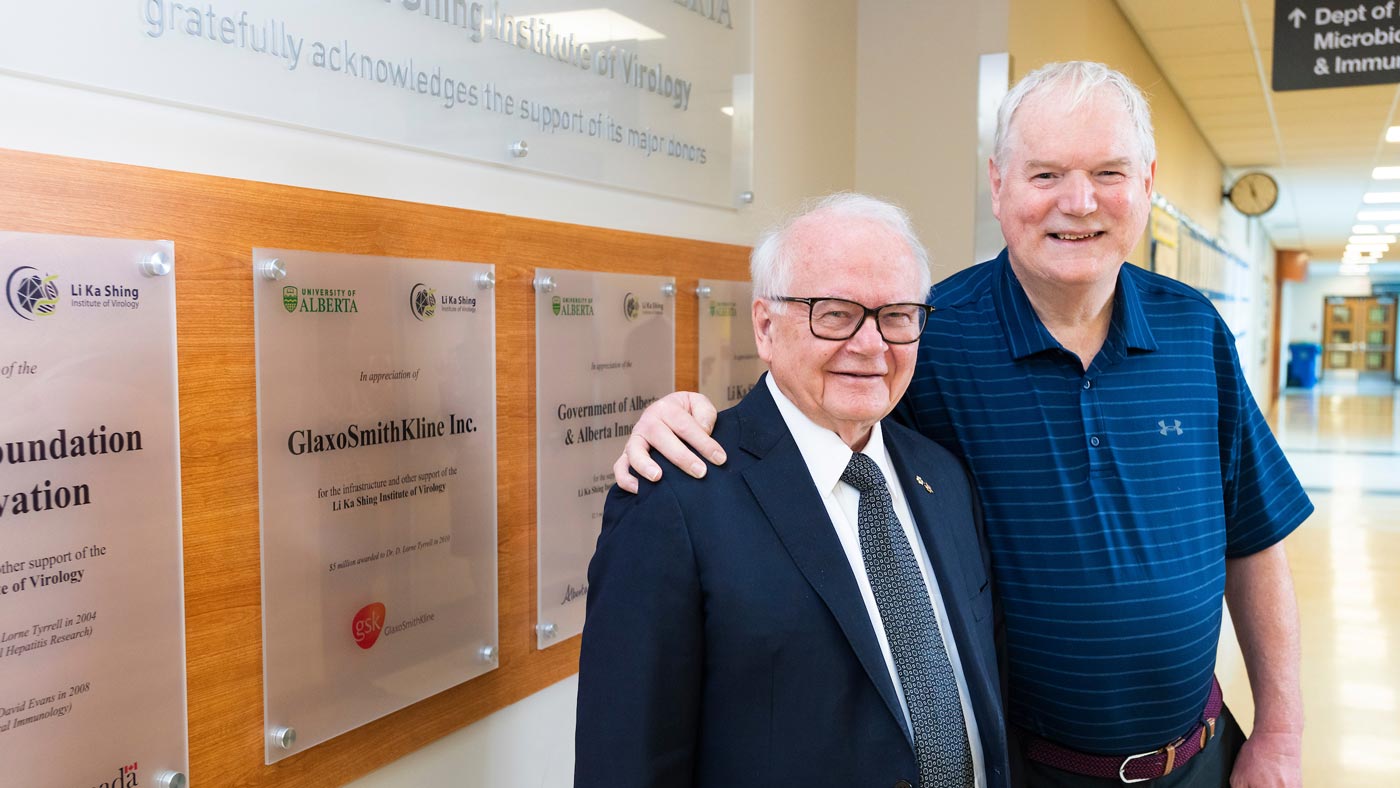
D. Lorne Tyrrell (left) and Michael Houghton, two of the world's foremost virologists and key U of A collaborators in the Canadian Critical Drug Initiative, say the initiative will help Canada be better prepared for pandemics. (Photo: John Ulan)
Drug hub will commercialize new discoveries, prevent shortages
The U of A is at the centre of an integrated research, development and manufacturing hub to commercialize new life-saving drugs and ensure Canadians have a reliable supply.
The $200 million Canadian Critical Drug Initiative (CCDI) is a partnership between the not-for-profit Applied Pharmaceutical Innovation (API) and the U of A's Li Ka Shing Applied Virology Institute. This includes $80.5 million from the Government of Canada, $17.6 million from the Government of Alberta, $20 million from Alberta Innovates and $41.1 million in financial and in-kind support from the Alberta and Edmonton region.
CCDI brings together governments, industry and researchers across Canada to develop, test and manufacture new drugs and produce widely used generic drugs that are chronically in short supply. It builds on the proven track record of Li Ka Shing Applied Virology Institute members who have numerous discovery projects underway to treat or prevent hepatitis C, COVID-19, herpes, cancer, group A streptococcus, Alzheimer’s disease and others.
The initiative will help Canada be better prepared for pandemics and develop drugs and preventatives against common major diseases, says Sir Michael Houghton, co-recipient of the 2020 Nobel Prize in Physiology or Medicine, professor of medical microbiology and immunology.
How CCDI fills a gap in the manufacturing small-molecule therapeutics »
